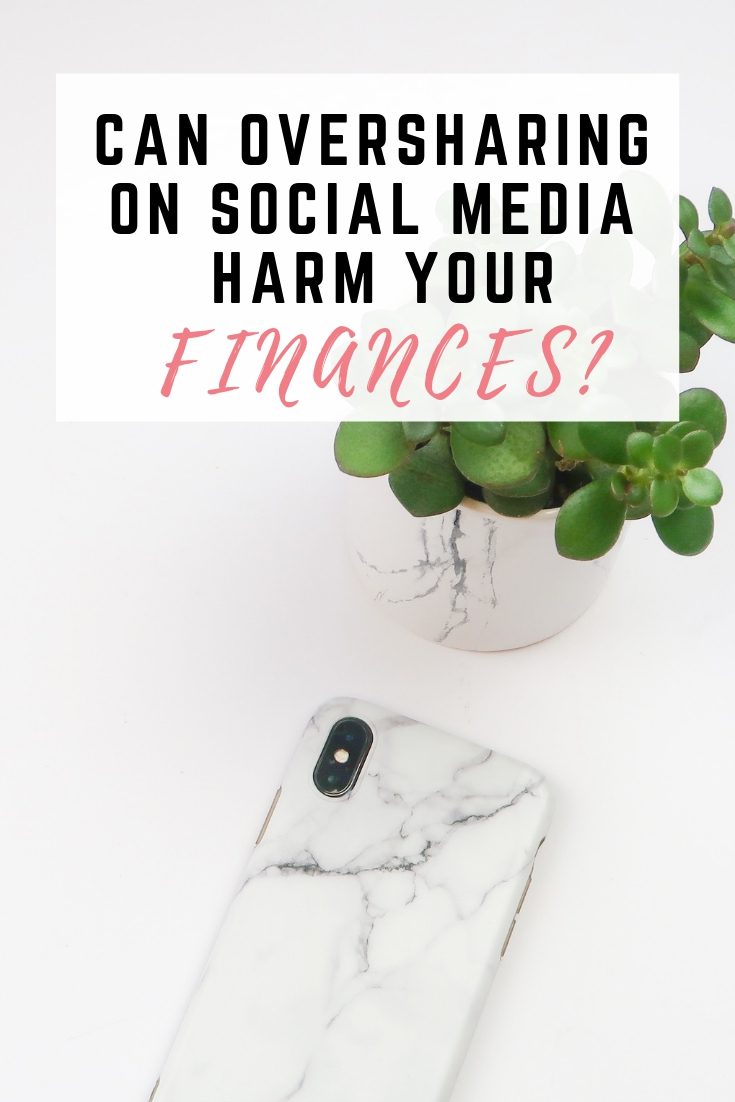Many of us are guilty of oversharing on social media, but have you ever stopped to think about whether this could damage your finances or cost you money? Let’s take a look at some of the dangers of oversharing on social media.

Going on holiday
I am guilty of this one – when you are on holiday then of course you want to share your excitement with your friends, family members and followers. Have you ever stopped to think that checking in to the airport before a holiday tells people that you are away, and that your house is vacant? You might have your Facebook settings set to only show your updates to your friends, but other social media accounts like Twitter and Instagram aren’t necessarily set to private.
As well as advertising your vacant house to potential criminals, you also run the risk of your home insurance provider not paying out if they find that you have been advertising your absence on social media. This means they may not cover not only your stolen items but also damage to your locks and windows.
Identity theft
Identity theft is rife, and social media is the perfect place for fraudsters to find enough information about you to commit identity theft.
Just think about the information on your Facebook profile – it even includes your date of birth. If your privacy settings aren’t strict then anyone browsing Facebook can access that information.
You might think that someone having your date of birth isn’t a big deal, however it is a common security question when you need to complete security over the phone, perhaps with your bank or another financial institution.
Combine that with memes where you need to name your first pet and use the first letter of your name to come up with something like your Elf name, and you have the answers to some very common security questions – your date of birth and the name of your first pet.
Watch out when you are giving permission to games and apps on Facebook, and take note of what you are being asked to share. Some apps just want your name and email address, but others will take information on your friends list, your birthdate and your location. Some games and apps have only been created to mine your data, then the scammers can use it themselves.
Geotagging/checking in
We love to tag locations in our social media updates, whether it is so that the business shares our update with their followers, or we just want to showcase where we are. This sort of geotagging in the moment alerts our followers to exactly where we are, and can cause trouble if any follower wanted to follow you.
Potential & existing employers
It is well known that employers can scour your social media accounts to see what you are up to. Potential employers will be looking to see if there is anything dodgy in your updates and might decide to not offer you a job. Your existing employer might also take a look to see what you have been saying, and if you have said anything negative about them then you might face dismissal.
Back in 2017 a Tesco staff member tweeted about how tired and drained she was, adding ‘I legit want to quit Tesco now’. Then before she knew it, Tesco themselves had replied with ‘Well, your wish is our command, Carley! We’ve informed staff management that you’re no longer working with us!’. Whilst most of us won’t be naming our employer in any such tweets, it just goes to show that a moment of not thinking could have disastrous consequences.
How to protect yourself online
There are a number of things that you can do to protect yourself from oversharing on social media
It is worth taking a few minutes to review your privacy settings on Facebook to see who can view your profile and updates. You can also remove sensitive data from your profile such as your birthdate. You can also visit Twitter to remove your birthdate and consider making your account private, and on Instagram you can switch to a private account.
You might want to consider what updates you will share when you are away from your home or on holiday. Whilst I love seeing a pool selfie, you might want to consider saving your holiday snaps until you are back home.
When you are tagging locations in your updates then it might also be worth waiting until you are leaving that location or on your way back home before uploading any updates.
And finally, think twice before you update your social media. Think about what you are saying and whether it could be harmful to someone, share personal information or put your job and livelihood at risk.






.jpg)




